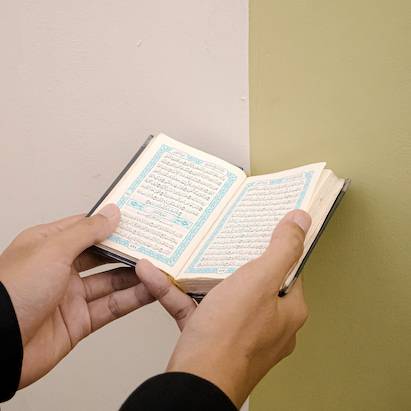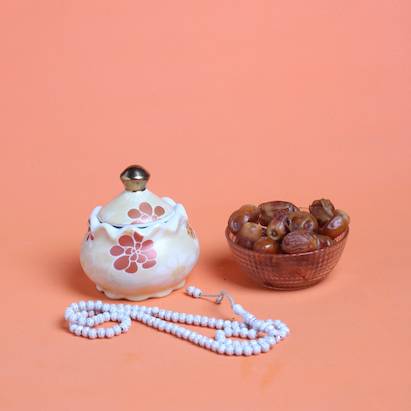

Curious about Ramadan 2025? As we're currently within the month, a lot of people seem to have questions and queries relating to this holy month that aren't easily asked. Being one of the holiest months in Islam, it naturally seems to have a huge impact on the population which can spark quite an interest. Not to worry, though, because we have built this guide with some of the most common FAQs regarding Ramadan you probably didn't know of.
Whether you want to know about Ramadan in general, what fasting is all about, or understand more regarding the thing that Muslims do during the month then this post should help clarify a major proportion of your curiosities. You will no longer get confused or be able to understand better about the holy month and its blessings through learning them on your own.
So, let's take a deep dive and see what Ramadan is really about, shall we?
Visit our Ramadan 2025 page for more Ramadan and Eid content!

Image Credit: Masjid Pogung Dalangan on Unsplash
Ramadan is the ninth month in the lunar calendar (Islamic/Hijri calendar) and is observed by Muslims from all over the world. This month is extremely important in this faith because it was the month in which the Noble Qur'an was first revealed. The Quran is the purest form of guidance sent from Allah (SWT) Himself is what Muslims use to strengthen their faith and seek all kinds of guidance – for this world as well as the next.
Muslims are to fast every day during the month of Ramadan as a way of strengthening their faith in various forms. Fasting during this month is also the third pillar of Islam and is a significant act of collective worship of Allah (SWT.) Fasting helps Muslims strengthen their faith by:
Fasting serves several spiritual and social purposes: it reminds you of your human frailty and your reliance on God for sustenance; it shows you what it feels like to be hungry and thirsty, so you feel compassion for (and a duty to help) the poor and needy, and it reduces life's distractions so you can focus more clearly on your relationship with God.
Muslims fast from dawn to sunset during Ramadan, refraining from eating any food, drinking any liquids, smoking cigarettes, or engaging in any sexual activity. This includes medication (even if you swallow a pill dry without drinking any water).

Image Credit: Benjamin Voros on Unsplash
In religious matters, Muslims adhere to a lunar calendar, which is based on the phases of the moon and has 12 months totaling approximately 354 days. That is 11 days less than the standard Gregorian calendar's 365 days. As a result, the Islamic lunar calendar advances by approximately 11 days each year in comparison to the Gregorian calendar.
As a result, the first day of Ramadan, the ninth month of the Islamic lunar calendar, moves backward by about 11 days each year.
It is Sunnah to eat a pre-dawn meal before beginning to fast - this is known as sahur. Sahur is not required, but it is strongly advised, even if it is just a few dates and a glass of water:
The Prophet (saw) said, 'Take sahur as there is barakah (blessing) in it.' [Bukhari]

Image Credit: Rauf Alvi on Unsplash
Iftar is the food eaten to break the fast at sunset. Because it is Sunnah to break your fast with dates before praying Maghrib, many Muslims eat their full dinner after praying Maghrib:
'The Prophet (saw) would break his fast with fresh dates before praying,' Anas ibn Malik (ra) said (Maghrib). If no fresh dates were available, dry dates were substituted. If no dry dates were available, then with a few sips of water. [Tirmidhi]

Image Credit: adam hilles on Unsplash
Tarawih is a Sunnah night prayer that is only performed during Ramadan. It is optional and is prayed after the 'Isha prayer, usually in a congregation, though many people pray it alone at home. It consists of at least eight rakaat (units of prayer), but most masjids will pray 20 rakaat, as the Sahabah did.
Ramadan has the BEST night of the entire year. This is known as Laylatul Qadr, or "The Night of Power" (also known as "The Night of Decree" or "The Night of Destiny"). Surah Qadr mentions the night's status and blessings:
′Indeed, We sent it (the Qu'ran) down during The Night of Power. And what can make you know what The Night of Power is? The Night of Power is better than a thousand months! The angels and the Spirit (i.e., Jibril) descend therein, by permission of their Lord, for every matter. Peace it is until the rising of the dawn'. [The Noble Qur'an, 97:1-5]